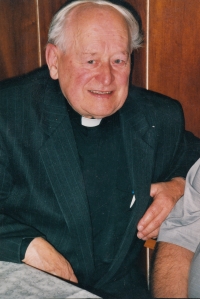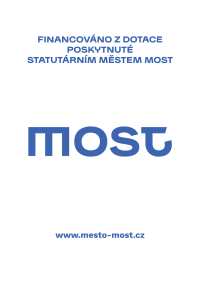She copied the parish priest’s samizdat and was arrested by State Security. She didn’t think about the danger

Download image
Božena Kostihová, maiden name Mayerová, was born in Prague but lived in Roudnice nad Labem. In 1945, her father Josef Mayer became the national administrator of the Meva company in Brandov, Most, where the family moved. Two years later the family moved again, this time to Jistebnice near Tábor, where the father worked at the Meva company. In the autumn of 1949, the father was arrested by the police and sentenced to three years in prison for espionage. He worked in the uranium mines in Jáchymov. The witness graduated from the gymnasium in Most and joined the Mining Construction Most as a typist and later as a draughtswoman. In 1961 she went on a company holiday to Moscow, where she visited the mausoleum where the embalmed bodies of Vladimir Ilyich Lenin and Josef Vissarionovich Stalin lay. In 1966 Božena Mayerová married Stanislav Kostiha, and in the following years they had a daughter Zuzana and a son Stanislav. During the baptism of her son in 1970, she met the priest Radim Hložánek. From 1972 she copied religious texts and songs for him. Both the witness and the priest were arrested by State Security in the autumn of 1981. After interrogation, Božena Kostihová was released and her home was searched. Parish priest Hložánek was sentenced to 20 months. The witness was investigated by State Security, yet she tried to support the clergyman and corresponded with him while serving her sentence. They became friends. After Hložanek’s release, she did not continue copying the text. She also experienced humane treatment by State Security officer. In 1984, she left school to work in an insurance company. On 17 November 1989 she was in Prague, her son took part in a demonstration on Národní třída. Since then, her children have been involved in post-Soviet events. She did not feel the need to be active even within the Civic Forum. In 1992 she started working in a car rental company. She retired in 1997, and subsequently she and her husband travelled all over the world. In 2023, she lived in Most. The story of the witness could be recorded thanks to the support of the Statutory City of Most.



